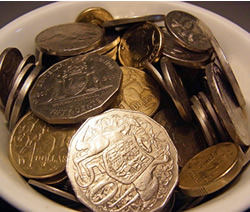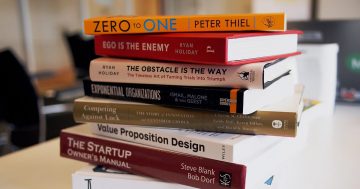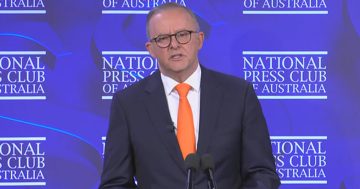Nicolas Cole* says there are seven hard money lessons people are going to learn during this pandemic.
 My colleague said something to me a while ago that fundamentally changed my perspective on money.
My colleague said something to me a while ago that fundamentally changed my perspective on money.
He said, “We haven’t personally experienced a recession yet.”
I was only 18 years old when the markets crashed in 2008.
I didn’t have a full-time job, or a working relationship with money.
I didn’t truly have context or a larger understanding of what “a crash” meant, and how it was impacting people’s lives.
At 29, I am now experiencing my first “global recession”.
Millions of people are filing for unemployment.
The world is grinding to a halt.
As you begin to make strides in your career, it can be very easy to think that what’s currently happening will happen this way forever.
Older, wiser, more experienced people know this is far from the truth.
While this is certainly my first recession, my first global pandemic, my first time being an adult in the working world and being personally and individually impacted by what’s going on, I am reminding myself that life ebbs and flows.
The Great Depression didn’t last forever.
The 2008 Global Financial Crisis didn’t last forever.
Markets go up.
Markets go down.
But it’s those who remain calm and optimise for these waves of change who end up being successful over the long term.
Here are seven things I encourage everyone to keep at the forefront of their minds when it comes to personal finances during and after the coronavirus pandemic.
- It’s not about how much you make.
It’s about how much you save.
I know plenty of people who make $250,000 per year, and save $5,000 per year.
They live terrific lives, but they also put themselves at an unnecessary amount of risk.
Conversely, I know people who make $80,000 per year, and save $20,000 per year.
They live modestly, but they set themselves up for success in the long run.
I strongly encourage you to live like the latter.
And as your income scales, so too should the amount you put away for safe keeping.
- Never underestimate cash on hand.
When I first started making a little bit of money, I put everything I had into stocks.
I wanted to start seeing my savings compound on themselves.
This was great in theory, right until the moment I decided to leave my 9–5 job and become an entrepreneur.
Suddenly, having money in stocks, although liquid, felt unnecessarily risky.
If the markets tanked tomorrow, that would severely affect my safety net.
We’re witnessing this same thing happen in the markets today.
Part of saving money means having a balance between cash you invest, and cash you keep “on hand”.
A good rule of thumb is to always have at least three months of living expenses readily available.
- Live by the 50/25/25 model.
I put 50 per cent of everything I make away in an account to pay taxes with at the end of the year.
I also try to save at least 25 per cent of the remaining 50 per cent.
So that means for every $100 I make, I put $50 away for taxes, $25 into savings, and leave $25 to use as income I can spend on: living expenses, travel, restaurants, etc.
The reason I love this model is because it keeps all my primary variables constant (taxes + savings), and if I ever want to spend more or “upgrade my lifestyle,” then I need to find ways to make more money overall — instead of taking money out of taxes or savings.
- Have a plan for the worse-case scenario.
One of the biggest reasons I’m so adamant about saving money is to be able to navigate another recession.
The first few years of saving are always the hardest.
But after several years of cultivating the habit, and as soon as you see that first comma in your savings account, your entire mentality will change — and you’ll realise the value of saving over the long term.
- Work to create multiple streams of revenue.
Especially in today’s world (where Millennials struggle to find jobs — and the Internet is an easily accessible resource), it’s imperative that you build multiple streams of revenue for yourself, so that if one declines, the others can keep the ship moving in the meantime (while you either repair what went wrong, or create a new stream of revenue for yourself).
- Spend time around financially prudent people.
If you hang around people who blow their money, chances are, you will too.
Instead, I encourage you to seek out people who are very responsible with money.
I sought out people I knew were successful and yet didn’t live overly lavish lifestyles.
I wanted to know how they treated their money, so I could learn how to do the same.
- Don’t ever “bet it all”.
If you are ever faced with an opportunity for a financial upside that requires you to “put it all on the line”, do not accept it.
You want to get in the habit of betting what you’re willing to lose, without compromising your long-term financial position.
* Nicolas Cole is a writer and founder of Digital Press. He tweets at @Nicolascole77.
This article first appeared at medium.com.











